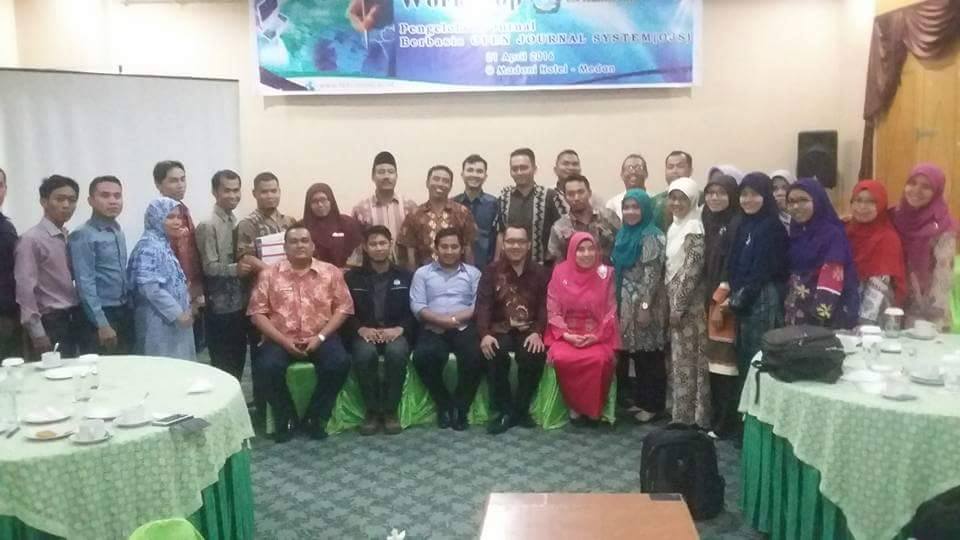HUMAN DEVELOPMENT INDEX (HDI) IN THE QUR'AN FROM THE QURAISH SHIHAB'S PERSPECTIVE
Abstract
Full Text:
PDFReferences
Beitz, C. (1986). Resources, Values and Development. Amartya Sen, Cambridge, Mass.: Harvard University Press, 1984, 547 pages. Economics and Philosophy, 2(2), 282-291. doi:10.1017/S147806150000267X
Hicks, N. and P. Streeten. Indicators for development: the search for a basic needs yardstick, mimeo (Washington, D.C.: IBRD, 1978); and World Development, Vol. 7, No. 6 (June 19791, pp. 567-580.
Ivanova, I., Arcelus, F. J., & Srinivasan, G. (1999). An assessment of the measurement properties of the human development index. Social Indicators Research, 46(2), 157-179. http://dx.doi.org/10.1023/A:1006839208067
UNDP. (1990). Human development report 1990. Oxford: Oxford University Press. Retrieved from http://hdr.undp.org/en/reports/global/hdr1990/chapters/
UNDP. (2011a). Human development report 2011, Sustainability and equity: A better future for all. New York: Palgrave Macmillan. Retrieved from http://hdr.undp.org/en/reports/global/hdr2011/download/
Aydin, N. (2017). Islamic vs conventional Human Development Index: empirical evidence from ten Muslim countries. International Journal of Social Economics, 44(12), 1562-1583. doi:10.1108/ijse-03-2016-0091
Ratih, Inayah Swasti & Tamimah. (2021). Indeks Pembangunan Manusia Dalam Islam. IZZI: Jurnal Ekonomi Islam. Vol. 1, No. 1, 55-69.
Bukhari, As'ad. (2018). Islam Dan Pembangunan Manusia Di Era Globalisasi. ISLAMUNA: Jurnal Studi Islam Volume 5 Nomor 1, 1-11.
Zangoueinezhad, Abouzar & Asghar Moshabaki. (2011). Human resource management based on the index of Islamic human development: The Holy Quran's approach. International Journal of Social Economics, Vol. 38 Issue: 12, pp.962-972, https://doi.org/10.1108/03068291111176329
Tiam, S. D. (2014). Historiografi Filsafat Islam. Malang: Intras Publishing.
Mubarok, A. (2000). Jiwa Dalam Al-Qur'an: Solusi Krisis Keruhanian Manusia Modern. Penerbit Paramadina.
Basri, Faisal. (2009). Lanskap Ekonomi Indonesia, Kajian Dan Renungan Terhadap Masalah-Masalah Struktural Transformasi Baru, Dan Prospek Perekonomian Indonesia. Jakarta: Kencana.
Arep, Ishak & Hendri Tanjung. (2004). Pengembangan Sumber Daya Manusia. Jakarta: Penerbit Universitas Trisakti.
Sumarsono, Soni. (2001). Indeks Pembangunan Manusia Dan Pemanfaatannya Dalam Pembangunan Daerah Bandung. m.cnnindonesia.com/ekonomi/20170322182446-78-202081 ranking indeks pembangunan manusia Indonesia turun ke 113
Karim, Adiwarman A. (2016). Ekonomi Mikro Islam. Jakarta: Raja Grafindo.
Hasibuan, Irwan Habibi. (2019). Konsep Pembangunan Manusia Berdasarkan Maqashid Syariah. Al Fatih: Jurnal Ilmu Ekonomi Syariah, vol 1, no 1, 1-34
Syamsuddin, Sahiron. (2017). Hermeneutika dan Pengembangan Ulumul Qur'an. Yogyakarta: Nawasea Press.
Mathias, N. and Teresa, H.R. (2006). A hermeneutic of Amartya Sen's concept of capability. International Journal of Social Economics, Vol. 33 No. 10, pp. 710-722.
Hansson, J. (2005). Hermeneutics as a bridge between the modern and the postmodern in library and information science. Journal of Documentation, Vol. 61 No. 1, pp. 102-113.
Small, N. and Mannion, R. (2005). A hermeneutic science: health economics and Habermas. Journal of Health Organization and Management, Vol. 19 No. 3, pp. 219-35.
Verstegen, B.H.J. (2011). A socio-economic view on management control. International Journal of Social Economics, Vol. 38 No. 2, pp. 114-27.
Lyons, P. (2009). Action theory and the training and performance application: performance templates. Industrial and Commercial Training, Vol. 41 No. 5, pp. 270-9.
Fontaine, R. (2008). Problem solving: an Islamic management approach. Cross Cultural Management: An International Journal, Vol. 15 No. 3, pp. 264-74.
UNDP. (2020). Human Development Report. New York: United Nations Development Programme.
Shihab, M. Quraish. (2002). Tafsir Al-Misbah Vol. 13. Tangerang: Penerbit Lentera Hati.
Zangoueinezhad, Abouzar & Asghar Moshabaki. (2011). Human resource management based on the index of Islamic human development: The Holy Quran's approach. International Journal of Social Economics, Vol. 38, Issue 12, pp. 962-972, https://doi.org/10.1108/03068291111176329
Anto, H. (2011). Introducing an Islamic Human Development Index (I-HDI) to Measure Development in OIC Countries. Islamic Economic Studies, 19(2), 69-95.
Badan Pusat Statistik. (2020). Indeks Pembangunan Manusia 2020. Badan Pusat Statistik.
Tarigan, Azhari Akmal. (2014). Teologi Ekonomi: Upaya Internalisasi Nilai-Nilai Tauhid Dalam Aktivitas Ekonomi Dan Bisnis Islam. Depok: Rajagrafindo Persada.
The Royal Islamic Strategic Centre. (2021). The Muslim 500: The World's 500 Most Influential Muslims, 2022.
DOI: http://dx.doi.org/10.30829/hf.v9i2.13367
Refbacks
- There are currently no refbacks.
Indexed by:



_-_Copy3.png)














